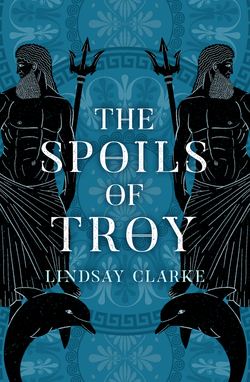Читать книгу The Spoils of Troy - Lindsay Clarke - Страница 7
The Justice of the Gods
ОглавлениеMore than fifty years have passed since the fall of Troy. The world has turned harder since iron took the place of bronze. The age of heroes is over, the gods hold themselves apart, and my lord Odysseus has long since gone into the Land of Shades. It cannot now be long before I pass that way myself; but if honour is to survive among mortal men, then pledges must be kept, especially those between the living and the dead.
Thus I Phemius, bard of Ithaca, remain bound by the solemn pledge I made to Lord Odysseus on the evening when a few of us sat by the fire in his great hall discussing whether or not justice was to be found among the gods. I insisted that few traces of divine order were discernible in a world where a city as great as Troy could be reduced to ruin and yet so many of its conquerors were also doomed to terrible ends. What point was there in looking to the gods for justice when the deities could prove as fickle in their loyalties as the most treacherous of mortal men?
‘That Blue-haired Poseidon should have wreaked his vengeance on the Argive host is unsurprising,’ I declared. ‘He had favoured the Trojans throughout the war. But Divine Athena had always been on our side, even in the darkest times. So how could she have forgotten her old enmity with Poseidon for long enough to help him destroy the Argive fleet? Such perfidy would be appalling in a mortal ally. How then can it be excused in an immortal goddess?’
Odysseus studied me in silence for a time. The expression on his face reminded me plainly enough that I might know all the stories by heart but I had never been at Troy myself and was speaking of matters that lay far outside my experience.
‘Even a god’s heart can be shaken by the sacking of a city,’ he said. ‘Even enemies can conspire when they find a common cause. As for myself, I believe that the gods see more deeply into time than we do, and what appears to us as mere caprice may eventually prove to be a critical moment in the dispensation of their justice.’
I saw him exchange a smile with his wife Penelope, who turned to me. ‘Consider,’ she said, ‘what Grey-eyed Athena must have thought as she saw Locrian Aias trying to ravish Cassandra even in the sanctuary of her own shrine. Consider how the goddess must have felt when Agamemnon ordered her sacred effigy to be taken from Troy and carried off to Mycenae.’
‘And those were not the only crimes and desecrations committed that night,’ Odysseus added. ‘If Divine Athena turned her face against us, it was with good cause. I can well imagine that she looked down through the smoke on the destruction of Troy and felt that she had seen enough of the ways of men to know that there could never be peace till they came to understand that the desolation they left behind them must always lie in wait for them elsewhere.’
It falls to me now to show how the truth of those words he spoke about Divine Athena was made manifest in the hard fates that awaited the Argive heroes after they celebrated their triumph at the fall of Troy.
